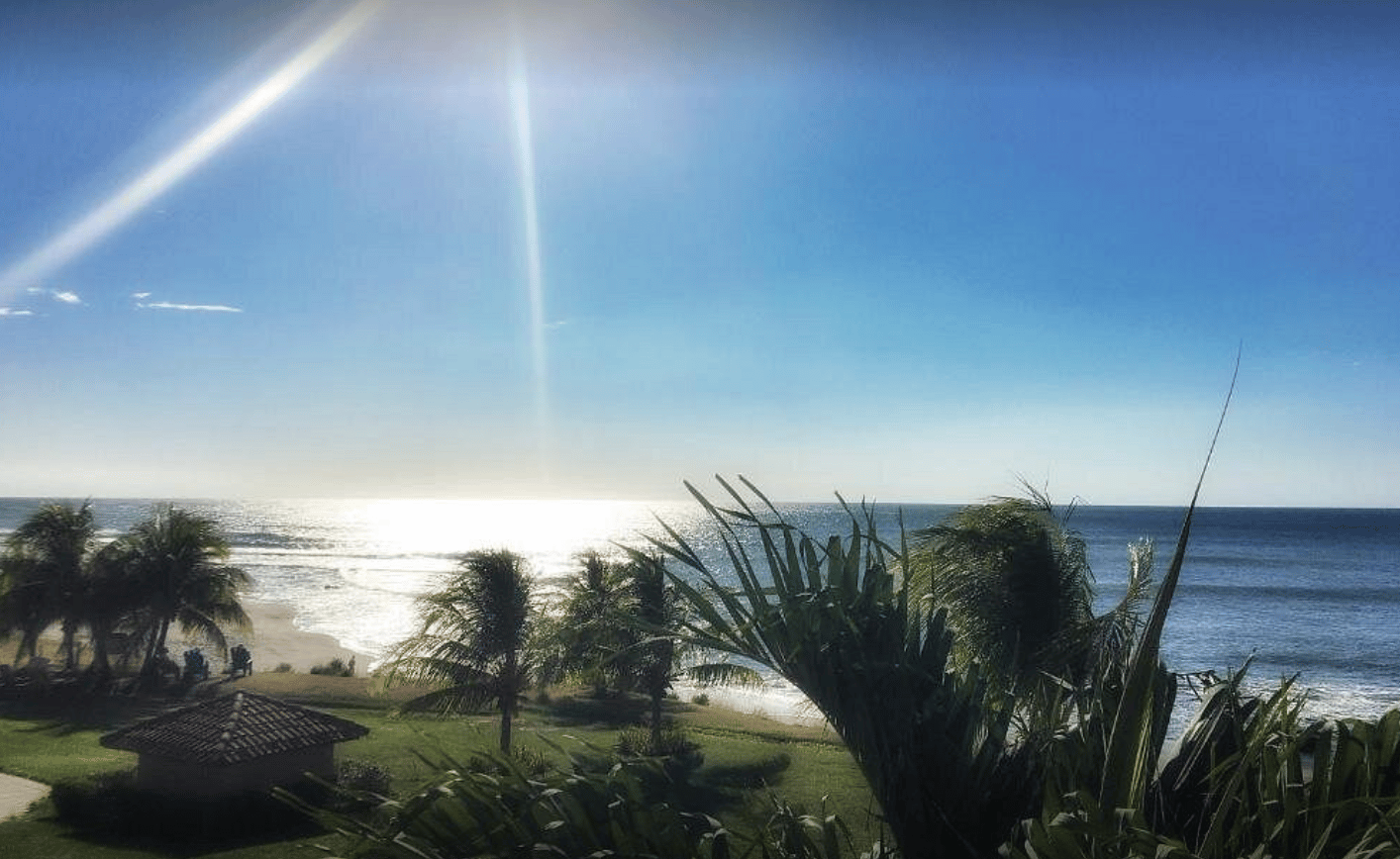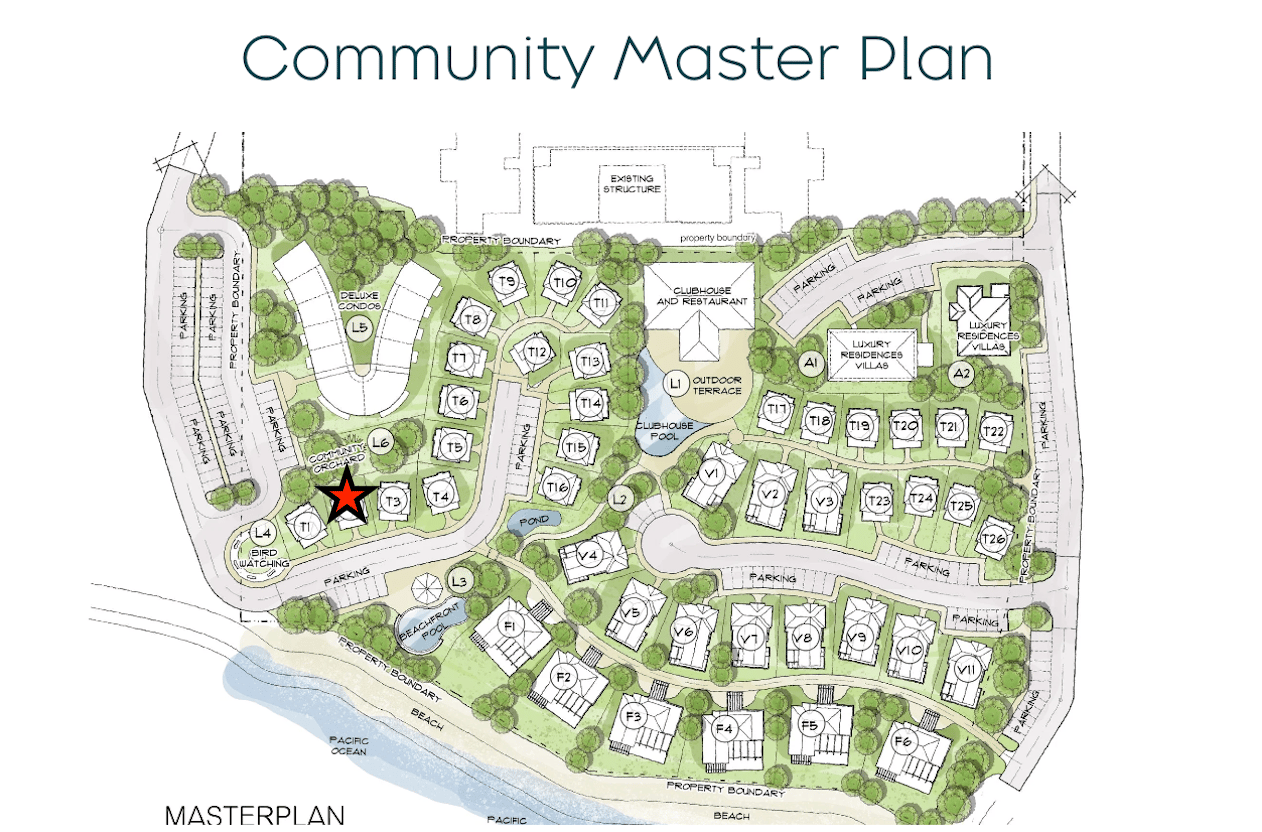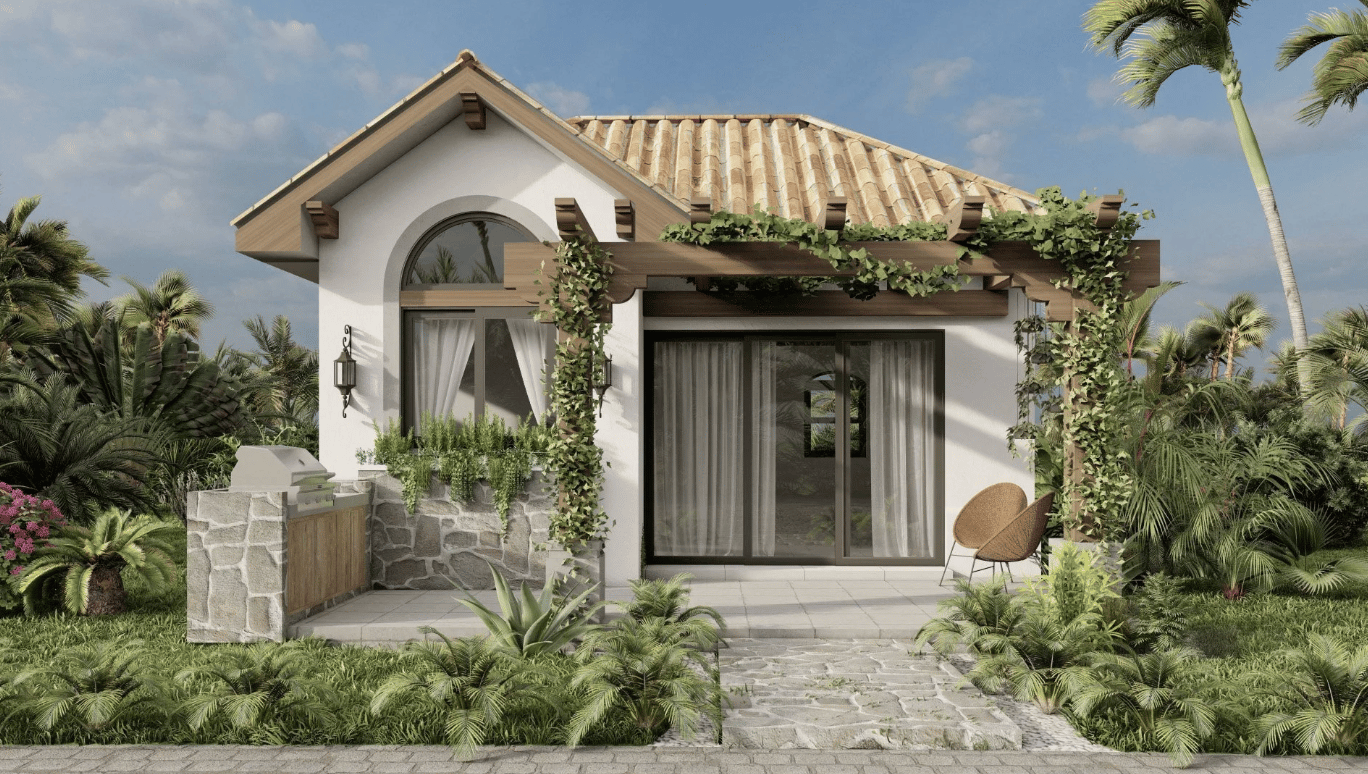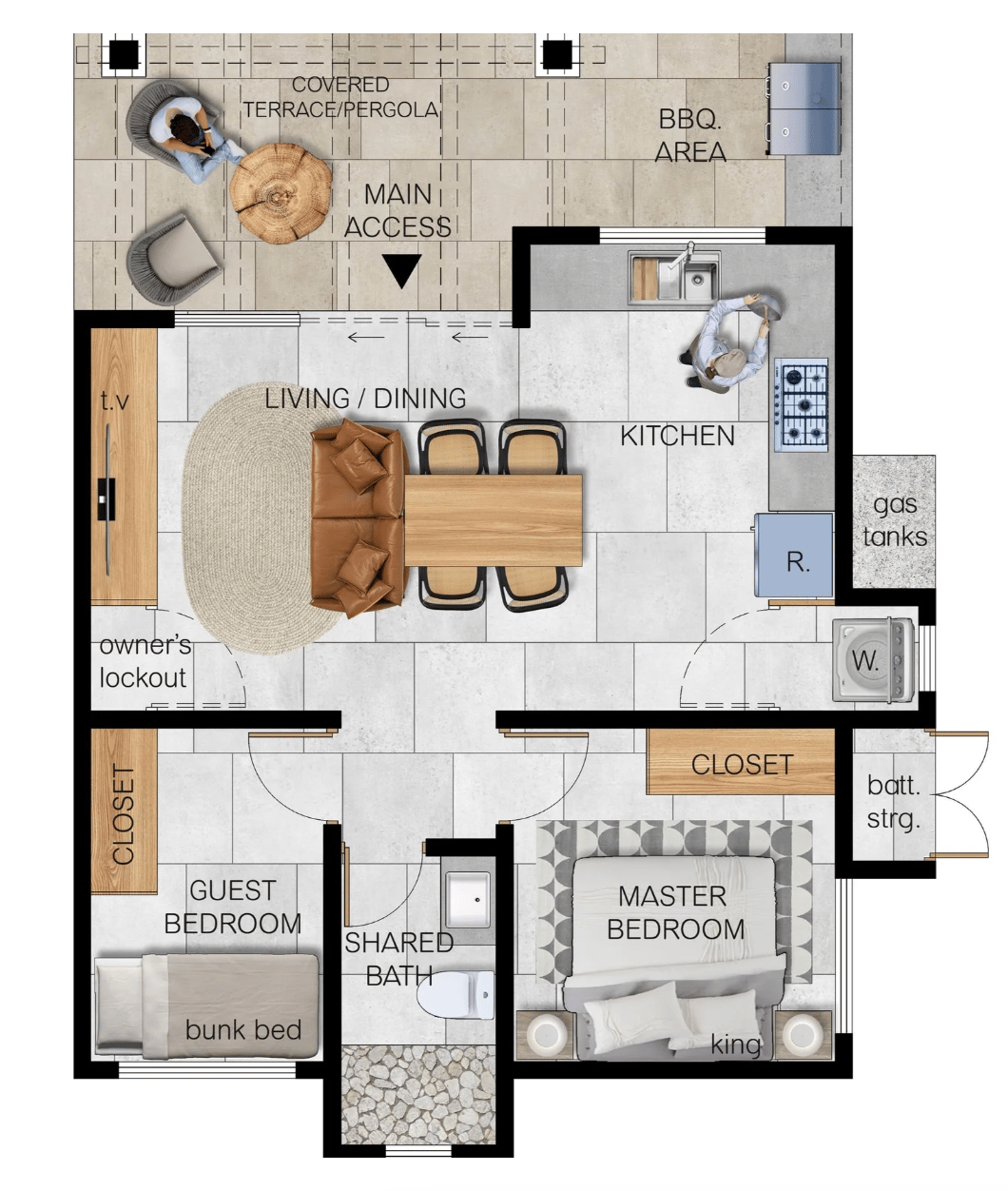Hey guys, Mikkel here,
Over the past decade, I’ve lived in and out of more countries than I can count, and one of the biggest lessons I’ve learned is this: the “system” you live under shapes every corner of your life, whether you want it to or not.
When I’m in Canada (which is quite rare these days), I’m reminded of what it feels like to live under constant supervision.
Every little thing is monitored, regulated, and taxed.
If you want to build, you need permission.
If you want to run a business, prepare for endless inspections and paperwork.
If you want to keep more of what you earn, forget it; the government will always be there first in line demanding its cut.
…and it’s not just the economics.
It’s the mindset.
People are tired.
Families are squeezed.
The hope is gone.
Even the simple act of wanting independence, like growing your own food, teaching your kids outside the system, and owning something outright, feels like swimming upstream in a culture that punishes initiative.
Back there, everything is about compliance.
Paperwork for the simplest projects.
Taxes on top of taxes, all for the “privilege” of being told what you could and couldn’t do with your own property.
Every step toward independence feels like a fight.
Contrast that with my time in Latin America, where I have lived full-time for more than six years, and it’s a completely different story.
That’s why Nicaragua has been on my mind lately - it’s one of those places that flips the script on what most people think is possible: a government that largely leaves you alone, a climate that supports self-reliance, land and construction costs that are still affordable, and a geopolitical stance that keeps it out of the blast radius of Western chaos.
It doesn’t have the same global buzz (yet) of a place like Costa Rica, it’s not right across the border like Mexico, and thus, many people barely give it a thought.
For someone like me, who has tested different countries and witnessed the frustrations of Western decline firsthand, Nicaragua represents something rare: a place where you can still create a future on your own terms without being strangled by the system.
That’s why in today’s edition, I want to take a serious look at Nicaragua as a destination for off-grid living and long-term independence. s
For someone like me who’s spent years building in different countries, Nicaragua checks the boxes that matter.
…and for people in our community who are serious about crafting a real Off-Grid Plan-B, it deserves to be on the shortlist.
Let’s get into it…
Why Nicaragua Works For Freedom-Minded Expats
A Government That Doesn’t Meddle
One of the things driving people crazy in the West right now is how hard it’s become to simply live freely.
Every single step requires permission.
Want to add a rainwater catchment system? Fill out forms, pay fees, wait for approval.
Want to raise a few chickens in your backyard? Expect zoning laws and city officials showing up with a clipboard.
Nicaragua is different.
It’s not a utopia, but the government here doesn’t micromanage the daily lives of its people.
You can buy land, build a modest house, hook up solar panels, dig a well, raise animals, and no bureaucrat is hovering nearby with a fine book in hand.
That kind of breathing room is worth its weight in gold for those of us who are sick of being treated like criminals for wanting independence.
Does this mean there are no laws? Of course not.
But it does mean the state doesn’t have the capacity (or the interest) to crawl into every detail of your personal life.
For off-grid families, that translates into freedom.
You can direct your time, energy, and capital into creating a sustainable lifestyle instead of fighting city hall or paying endless permitting fees. In the long run, that difference compounds.
One path leaves you exhausted and broke. The other leaves you with land, food, and real independence.
The right path means the time, money, and energy you spend go directly into building your independence instead of defending yourself from regulators.
And over even a short time period, that difference compounds.
Ten years of building without bureaucratic interference is the difference between living free… and living tired.
A Climate That Supports Self-Reliance
Ask anyone who’s tried off-grid living in North America or Northern Europe: the hardest part isn’t building solar arrays or installing septic… it’s survival against the climate.
You plant crops only to see them wiped out by frost.
You store six months of firewood just to keep from freezing through the winter.
You spend thousands of dollars on insulation, backup generators, and greenhouses… all just to maintain the basics of life.
In Nicaragua, the land itself works with you, not against you.
The soil is volcanic and fertile, and rainfall is abundant; thus, the growing season never ends.
That means your food supply isn’t just a hobby… it’s sustainable.
Mango trees, avocados, plantains, citrus, beans, corn… all of it thrives with a fraction of the effort it would take in harsher climates.
…and when the basics of food security are on your side, everything else becomes easier.
For someone thinking about a serious Off-Grid Plan-B, this isn’t a small detail - it’s a game-changer.
Imagine walking onto your land and seeing trees heavy with fruit, year after year.
Imagine knowing that your garden keeps producing, and you’re not betting your family’s survival on a fragile supermarket system or a supply chain stretched across oceans.
That’s not just independence - that’s peace of mind…
…and few places make it more attainable than Nicaragua.
Property Rights That Actually Work
In Nicaragua, foreigners can own property in their own name or through a company, with the same rights as locals.
You can buy, sell, insure, and pass it on exactly as you would at home… but for a fraction of the cost, of course.
The prices here are still sane.
In many rural or coastal pockets, you can own multiple acres for what a single suburban lot costs in the West.
That kind of affordability opens the door to true autonomy - gardens, orchards, animals, workshops, solar setups.
A Culture of Mind-Your-Own-Business
Rural Nicaragua runs on a simple principle: live and let live.
People farm, work, and raise families.
If you show respect, contribute to your community, and avoid importing the endless cultural battles of the West, you’ll find neighbours who look out for you, not over you.
…and the support network for expats is growing fast.
Solar installers, bilingual doctors and dentists, homeschool co-ops, and farm-to-table supply chains are emerging quickly.
You’re not reinventing the wheel here… you’re plugging into an expanding ecosystem built around independence.
An Affordable Path To Freedom
One of the myths about off-grid living is that it requires millions of dollars.
You picture the Silicon Valley billionaire building a fortified hideout in New Zealand, complete with private security and aircraft hangars.
Sure, that’s one way to do it, but it’s not the only way.
In Nicaragua, costs are still at a level where regular people can create something robust and real.
Land is affordable, and construction and labour costs are a fraction of what they are in the West.
That means you can buy acreage, build a home, install solar, set up water systems, and still have capital left over.
When it comes to sustaining your off-grid lifestyle, affordability isn’t just about the initial buy-in…
It’s about maintaining your lifestyle far into the future.
When your cost of living drops, your stress drops with it.
Your dollar stretches here, and that difference buys you time, and time is the real currency of freedom.
You can build a deeper pantry, a wider safety margin, and a better lifestyle without burning through your life savings.
In a world where rising costs at home are cornering families into debt, Nicaragua gives you breathing room… and options.
Geopolitics That Keep You Outside The Blast Radius
Here’s a question not enough people ask when they think about Plan-B living:
“Is this place even on the map for global conflict?”
Because the reality is, you can have the most beautiful land and the most resilient setup, but if you’re sitting in the middle of a geopolitical flashpoint, you’re still exposed.
Nicaragua isn’t one of those hot zones.
It’s not a hub of Western finance.
It’s not a NATO staging ground.
It’s not tied into the endless wars, sanctions, and political games of the major powers.
Now, that doesn’t mean it’s without risk (no country is), but it does mean that when global systems start cracking, you’re not standing in the line of fire.
For Plan-B living, this matters more than people realize.
You don’t just want fertile soil and sunshine… you want distance.
You want to be outside the blast radius when the World spirals into real violent conflict.
You want to be in a place where you’re not seen as a resource to be taxed or a pawn to be moved.
You can build the best homestead in the world, but if you’re sitting in the middle of a geopolitical hotspot, you’re still exposed.
For an Off-Grid Plan-B, that kind of insulation is priceless.
A Tax System That Respects Boundaries
Nicaragua operates on a territorial tax system, meaning the government primarily taxes income earned inside the country.
Many expats structure their lives so that foreign-source income remains exactly that… foreign (and therefore outside the local tax net).
The best way to secure real estate offshore effectively and financially advantageously is by working directly with me and my team at Expat Money, by the way.
My team and I will personally help you design a comprehensive Plan-B that ensures every piece (including your Nicaraguan holdings) fits together perfectly and works seamlessly in unison so you get all the benefits of the offshore lifestyle.
The Geography of Freedom: Three Worlds, One Country
In one weekend, you could surf the Pacific, drive into coffee country for cooler air and fresh produce, and end the day with a glass of wine overlooking Lake Nicaragua.
That kind of flexibility is the ultimate luxury, not just financially, but psychologically.
You’re not forced into a single definition of freedom.
You get to design it.
That’s why, when people ask me what makes Nicaragua different, I say: geography equals opportunity.
Off-grid here doesn’t have to mean disappearing into the wilderness.
It can mean owning your environment and shaping it around your priorities, rather than conforming to the current perception of off-grid living.
One of the most overlooked advantages of Nicaragua is how dramatically different the environment changes from one region to the next.
That flexibility is rare, and it’s one of the reasons this country fits so many different versions of freedom for families who have different ideas of what an Off-Grid Plan-B looks like.
The Pacific Lowlands: Sun, Sand & Salt
The Pacific corridor is warm, dry, and bright nearly year-round
For freedom-minded expats who still want easy access to surf breaks, seafood markets, or coastal towns, this region offers the sweet spot… you can live independently without cutting yourself off from the “modern world”.
Think beach and palms, not forest and trees.
You can have a private compound with solar power, water catchment, and permaculture design… and have it on the beach.
It’s “off-grid” in spirit, but not isolationist.
The Central Highlands: Coffee Country & Cool Mountain Air
Travel a few hours inland, and the air changes.
The nights are cool, the humidity drops, and you start seeing mist cling to the mountains.
This is Nicaragua’s other off-grid culture - think small farms, coffee fincas, and rural families living in quiet mountain towns.
It’s the perfect fit for families who crave the quiet and productivity of rural life without the heat of the coast.
People who settle here often come from colder countries and want something that feels familiar… a place where you can wear a sweater at night, sit by a fire, and still be completely energy independent and self-reliant.
For them, Nicaragua offers a rare combination: the climate of a mountain retreat with the cost structure of a developing nation.
The Lake Corridor: Wind, Water & Familiarity
Then there’s the stretch of land that hugs the massive freshwater lakes inside the country.
Here, the climate moderates naturally.
You’ll see farms here that look almost European - rolling terrain, tree-lined roads, and wide-open pasture.
With easy access to both the Pacific and the Caribbean, this corridor gives you connectivity without congestion.
If you’ve ever dreamed of a property where you can grow your own food, run your own energy, and still be within two hours of an international airport, this is it.
DEAL OF THE WEEK: Veritas Villages at Playa Pacifica
Playa Pacifica is the closest gated beachfront resort to Managua’s international airport.
That means you’re less than one hour from the capital city, meaning easy access to private hospitals and modern shopping.
This, yet, your home is steps from world-class surf, horseback riding trails, yoga palapas, restaurants, and so much more.
Playa Pacifica sits inside Gran Pacifica, Nicaragua’s premier gated coastal resort.

Inside the larger Gran Pacifica, homeowners at Playa Pacifica get access to an impressive lineup of amenities (and geographical perks), including:
9-hole golf course
Lawn tennis and frisbee golf
Multiple swimming pools
A full yoga palapa setup
World-class surf breaks right out your front door
High-quality restaurants within walking distance
And soon… a lazy river that will wind along the oceanfront
Now… I wouldn’t just tell you all about this development if I didn’t offer you a way in…
Inside the Playa Pacifica masterplanned community, things are really starting to take shape, with nearly 20% of all home lots purchased or under contract.
Now, most owners choose their lots and then pick from one of our five different home styles, ranging from small (but luxurious) “tiny homes” to full estate-style homes…
However, given that demand has been kicking up and the community has been taking shape, we decided to build an oceanfront 2-bedroom, 1-bath home, fully knowing that once we told you guys about it, someone would jump at the offer to secure the unit without having to wait for it to be built.
The unit I am discussing today is actively being built and will be ready for key transfer to the new rightful owner in just a few months.
What we’re building is a “Losino” model home.
It sits on Lot T2, and although its footprint may be small… it’s mighty.

It has high vaulted ceilings that give its 600-ish square foot layout a feel much bigger.
Plus, the open-concept living that walks out to an expansive patio lends well to the feeling of spaciousness, too.
It’s big enough to comfortably serve a couple long-term, or families for shorter stays.

Unlike many beach communities in Central America, the land at Playa Pacifica is titled and transferable.
That means no leaseholds, no local-nominee risks, and no surprises when you want to sell or pass it on to your heirs.
This is real ownership. In your name. Period.
Whether you’re looking for a low-maintenance rental property, a turn-key “Off-Grid Plan-B” style residence, or your forever home on the Pacific, this checks every box:
Titled beachfront land
Energy-sufficient homes (with solar systems)
Private resort amenities
Low cost of ownership
High rental demand from domestic and international visitors
A prime location in one of the safest, most welcoming countries in Central America
Home Specs: The “Losino”
Beachfront, 2-Bed, 1-Bath (598 ft² interior + 150 ft² exterior patio)
LOT T2: Direct Ocean Front + Steps From The Community Infinity Pool
Original Cost: $189,900 USD
Discounted Member Cost: $179,900 USD (you’re saving 10k just for being a member of this community).
Appliances & Built-Ins Included (Furniture Is Not)
Purchase Process Support: YES
Monthly HOA Fees: $100 - $150 USD

The (Extra) Special Deal Terms:
Now, as it stands, this deal is pretty solid, if I do say so myself…
…but it gets better…
If you are interested in securing LOT T2 (Losino model), I am extending a special offer that will give you a chance to “try it before you buy it”.
Here’s what I mean:
There is an already built version of this home model at Lot T4, which is available to rent, and if you want to stay here to check out the community, experience the quality of the builds for yourself and see what life is like on the ground within this community, it could cost you nothing…
If you decide to rent Lot T4 before January 1st, 2026, and then purchase Lot T2 (which will be nearing completion at that time), the money you spend renting Lot T4 will be deducted from the already discounted price I am offering you.
…beyond this, the rental rate you pay will be 20% less than what the general public pays.
To secure this deal, all you have to do right now is send an email to my partners here:
[email protected].
As you can see, an Off-Grid Plan-B doesn’t just have to mean a cabin in the woods.
…it can mean beachfront, too.
In the case of Nicaragua, it can mean sun and sand, or cool air and mountain breezes.
Above all, I want to make it clear that “off-grid” isn’t about just one way of living…
…it’s about where freedom can live on without such significant reliance on outside systems.
If you’re ready to learn more about going off-grid by way of an affordable, beachfront villa in Nicaragua, don’t wait.
Contact my partners right now by email at [email protected].
Speak soon,
Mikkel

